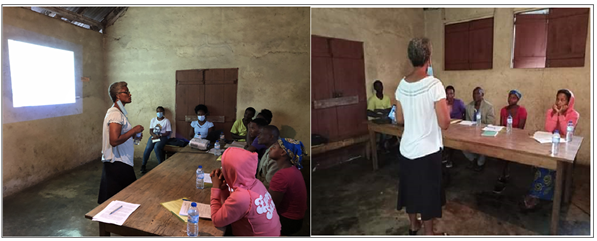Within the context of the MoU existing between the CWP and the Directorate of Water, GWP STP was selected as one of the NGOs to implement the "Creation, Institutionalization and training of community water management Committees for public drinking water supply points and laundry areas, led by women"- an activity within the framework of the water sector reform program.
The aim of this GWP STP supported phase of the program which kicked off in January 2021 is to promote gender equality and equity in the management of water supply systems in rural communities through creation of water supply points management committees, training and community awareness campaigns on improving WASH conditions and sustainable use of community infrastructure, with a focus on access to information and training for women and girls in rural areas as a fundamental aspect of their individual and collective empowerment.
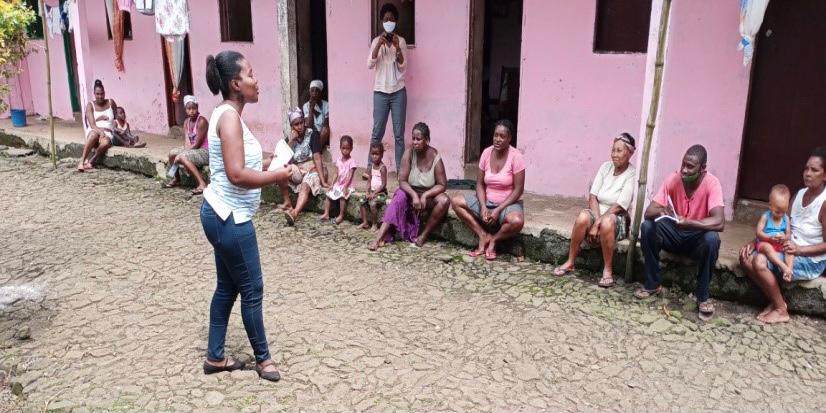
The overall goal is to promote positive behavioral change in the management of water resources and improve hygiene conditions to reduce the high incidence of water-borne diseases which continue to threaten the public health of the Island.
These activities were implemented in the communities of San Nicolau (Mé-Zochi district) and Arribana (Lembá district), all in São Tomé. The first step was to set up women-led water management committee to manage the public water supply points in these areas and ensure sustainable use of water.
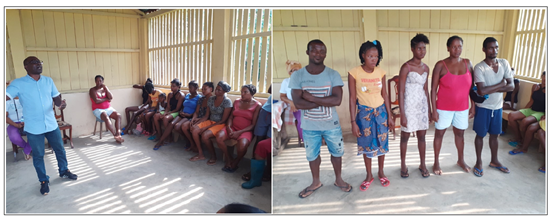
After meeting with some members of the community, a five-person committee led by a woman was set up in Arribana and San Nicolau respectively. To build their leadership capacity to enable them drive behavioral change, a three-day training session was carried out in both communities highlighting the functionality/role of the committee, effective community leadership, WASH, IWRM and the role of women, water policies amongst others.
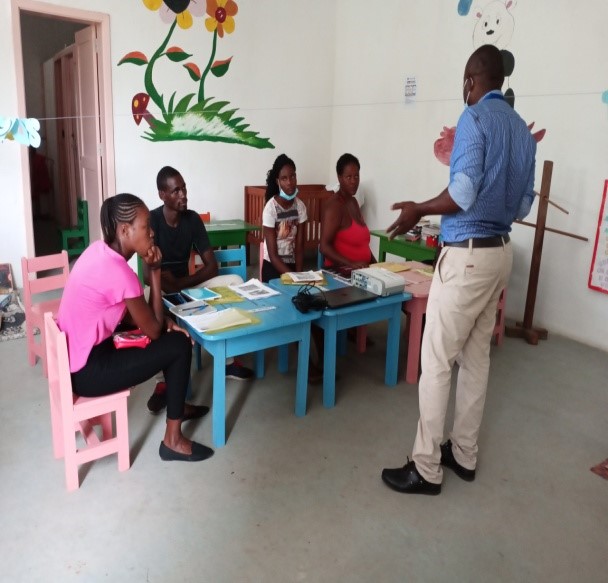
The committees were charged with the task of monitoring and ensuring the continuity of the project activities. At the end of the training, participants who also included the community leaders, were awarded certificates of participation.
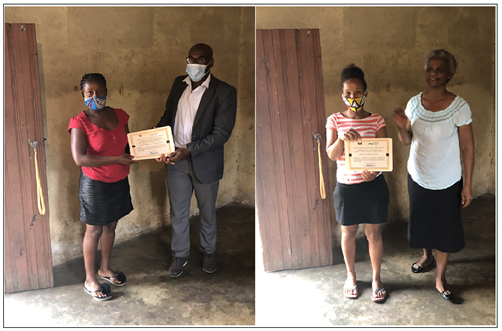
Community involvement is vital in ensuring behavioral change in the use of water and infrastructures as well as in improving WASH conditions. To promote awareness on these issues, three awareness campaigns were developed and carried out with the participation of community members, for the local population of San Nicolau with a focus on WASH, valuing water, Covid-19 preventive measures and risks, Gender and development as well as a demonstration of actions for the economic empowerment of women.
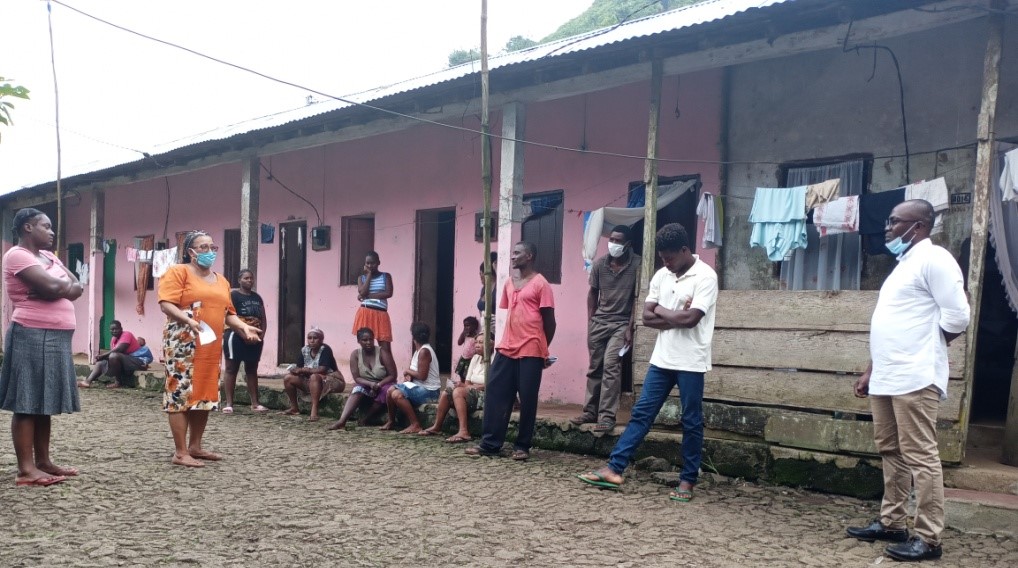
During these campaigns, emphasis was made on gender equality recognising the vital role women play in rural development through the control and management of water. Part of this awareness campaign included door to door outreach during which leaflets with illustrations were distributed to better improve understanding , raise awareness and show individuals the appropriate daily behavior that will better WASH conditions within the community. An awareness campaign is in the works for the Arribana community and the institutionalization the newly created committees are underway with a draft statute in place.
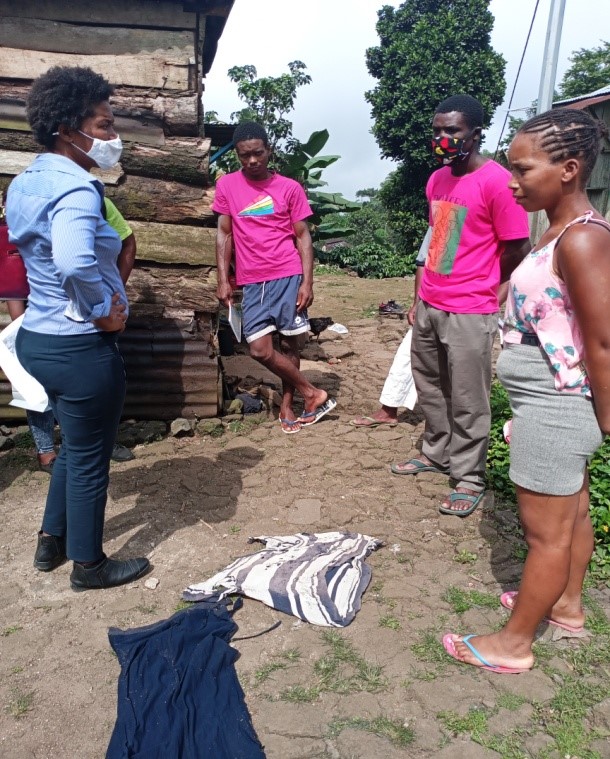
The main challenge faced was the low involvement of the local government in these activities especially as local ownership will remarkably drive results. In mid-February 2021 , a preliminary report of activities carried out by GWP STP and consultants was submitted to the European Union national authorizing officer and the Project Coordination Unit. After a review meeting with the STP team, the executing party expressed appreciation for the work done so far and a desire to continue the second phase of the project with GWP STP.
Background
Sao Tome and Principe (STP) is a small island country which faces sanitation crisis, especially within communities, due to demographic growth, inadequate sanitary infrastructures, lack of awareness, insufficient WASH education and training as well as the poor hygiene habits of the population which has been practiced overtime. These shortcomings have jeopardised the country's commitment to achieve SDG 6 which aims to "ensure availability and sustainable management of water and sanitation for all" by 2030.
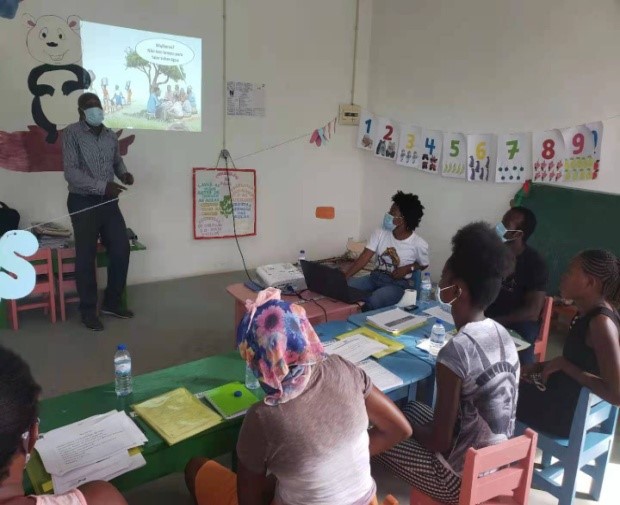 Faced with this situation, the Government of the Democratic Republic of Sao Tomé and Príncipe has committed to a policy of rehabilitation and conservation of drinking water infrastructures, paying attention to gender equality, with the aim of ensuring a constant supply of good quality water, thus reducing the incidence of water-borne diseases. As a result, the country has benefited from a Financing Agreement and in November 2015, a Water and sanitation Sector Reform Contract (SRC) was signed with the European Union (EU) within the framework of the EU’s ' agenda for change', for poverty reduction through inclusion and sustainable growth of which access to water and sanitation is one of the main components. This water sector reform program is being implemented by the Directorate of Water Resources STP
Faced with this situation, the Government of the Democratic Republic of Sao Tomé and Príncipe has committed to a policy of rehabilitation and conservation of drinking water infrastructures, paying attention to gender equality, with the aim of ensuring a constant supply of good quality water, thus reducing the incidence of water-borne diseases. As a result, the country has benefited from a Financing Agreement and in November 2015, a Water and sanitation Sector Reform Contract (SRC) was signed with the European Union (EU) within the framework of the EU’s ' agenda for change', for poverty reduction through inclusion and sustainable growth of which access to water and sanitation is one of the main components. This water sector reform program is being implemented by the Directorate of Water Resources STP
In December 2019, an addendum to the contract was signed for the inclusion of gender, in which priorities and indicators were established to measure the impact on each action, seeking to achieve, among others, the following indicator: Functional Women-led community drinking water and laundry management committees- recognizing the role that women play in the rural development process and their position regarding the use of and access to water, the management of public drinking water supply points and washhouses.
